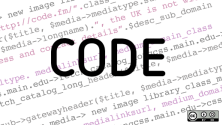React is a UI framework built on top of HTML, CSS, and JavaScript, where JavaScript (JS) is responsible for most of the logic. If you have knowledge of variables, data types, array functions, callbacks, scopes, string methods, loops, and other JS DOM manipulation-related topics, these will tremendously speed up the pace of learning ReactJS.
Your concept of modern JavaScript will dictate the pace of how soon you can get going with ReactJS. You don't need to be a JavaScript expert to start your ReactJS journey, but just as knowledge of ingredients is a must for any chef hoping to master cooking, the same is true for learning ReactJS. It's a modern JavaScript UI library, so you need to know some JavaScript. The question is, how much?
Example explanation
Suppose I'm asked to write an essay about a "cow" in English, but that I know nothing about the language. In this case, for me to successfully complete the task, I should not only have an idea about the topic but also the specified language.
Assuming that I acquire some knowledge about the topic (a cow), how can I calculate the amount of English I need to know to be able to write about the proscribed topic? What if I have to write an essay on some other complex topics in English?
It’s difficult to figure that out, isn’t it? I don’t know what things I'm going to write about the topic, but it could be anything. So to get started, I have to have a proper knowledge of the English language, but it doesn't end there.
Extreme reality
The same is true for the amount of JavaScript required before getting started with ReactJS. According to my example scenario, ReactJS is the topic "cow" while JavaScript is the English language. It's important to have a strong grasp of JavaScript to be successful in ReactJS. One is very unlikely to master ReactJS professionally without having the proper foundation of JavaScript. No matter how much knowledge I might have about the topic, I won’t be able to express myself properly if I don't know the fundamentals of the language.
How much is enough?
In my experience, when you start your ReactJS journey, you should already be familiar with:
- variables
- data types
- string methods
- loops
- conditionals
You should be familiar with these specifically in JavaScript. But these are just the bare minimum prerequisites. When you try to create a simple React app, you'll inevitably need to handle events. So, the concept of normal functions, function expressions, statements, arrow function, the difference between an arrow function and a regular function, and the lexical scoping of this keyword in both types of function is really important.
But the question is, what if I have to create a complex app using ReactJS?
Get inspired
Handling events, spread operators, destructuring, named imports, and default imports in JavaScript will help you understand the working mechanism of React code.
Most importantly, you must understand the core concepts behind JavaScript itself. JavaScript is asynchronous by design. Don't be surprised when code appearing at the bottom of a file executes before code at the top of the file does. Constructs like promises, callbacks, async-await, map, filter, and reduce, are the most common methods and concepts in ReactJS, especially when developing complex applications.
The main idea is to be good in JavaScript so you can reduce the complexity of your ReactJS journey.
Getting good
It's easy for me to say what you need to know, but it's something else entirely for you to go learn it. Practicing a lot of JavaScript is essential, but you might be surprised that I don't think it means you necessarily have to wait until you master it. There are certain concepts that are important beforehand, but there's a lot you can learn as you go. Part of practicing is learning, so you get started with JavaScript and even with some of the basics of React, as long as you move at a comfortable pace and understand that doing your "homework" is a requirement before you attempt anything serious.
Get started with JavaScript now
Don't bother waiting until you cover all aspects of JavaScript. That's never going to happen. If you do that, you'll get trapped in that forever-loop of learning JavaScript. And you all know how constantly evolving and rapidly changing the tech field is. If you want to start learning JavaScript, try reading Mandy Kendall's introductory article Learn JavaScript by writing a guessing game. It's a great way to get started quickly, and once you see what's possible I think you're likely to find it difficult to stop.







5 Comments